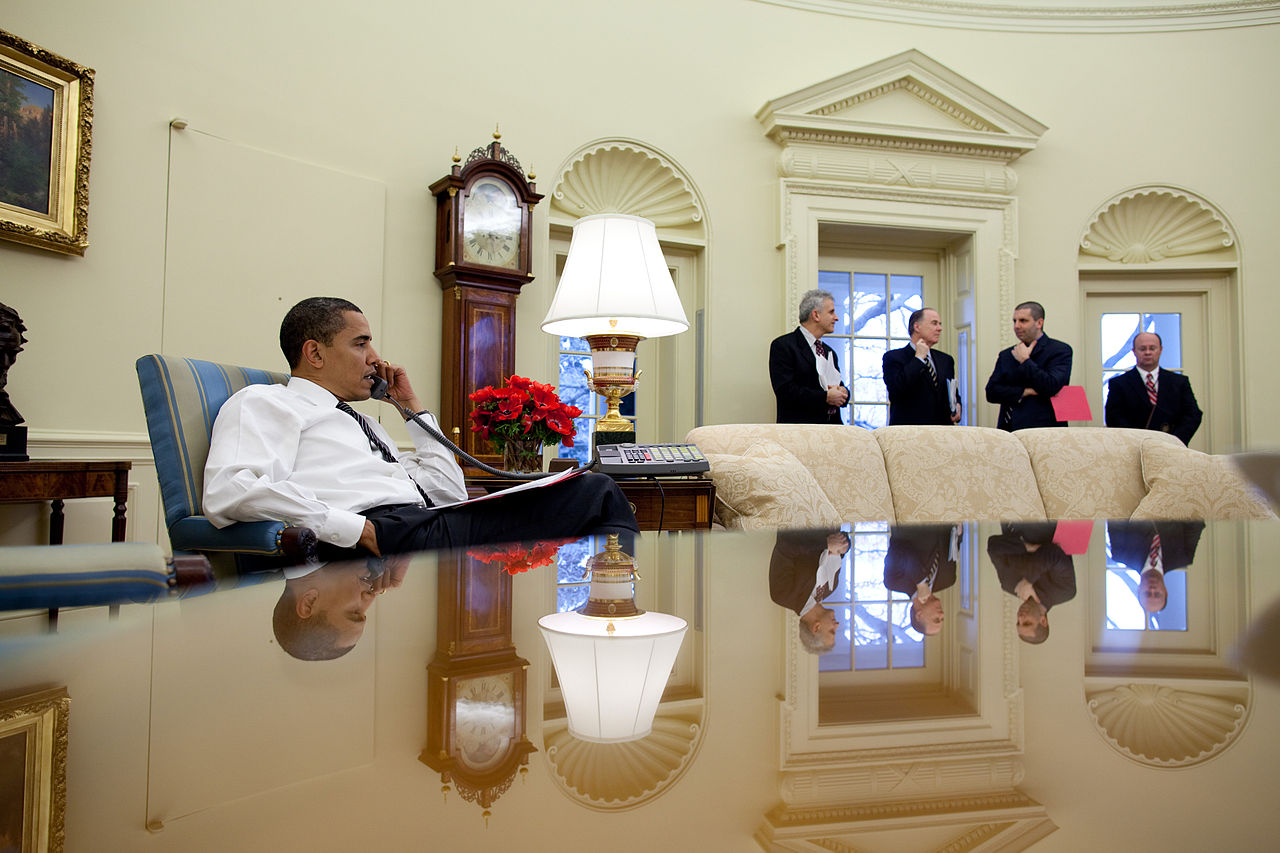
Wikimedia Commons
In his final budget as president, Barack Obama is calling for a surge of funds to support a massive overhaul of the government’s computer networks to strengthen them against cybersecurity threats.
The president is also seeking to implement a “spectrum license user fee” that is projected to bring in more than $4.8 billion by 2026.
Obama’s budget proposal calls for a whopping 35 percent increase in the cybersecurity budget, seeking a total of $19 billion to support the president’s new Cybersecurity National Action Plan.
“With the nation’s cyber adversaries getting more sophisticated every day—developing new botnets, spyware, malware and ransomware—we have to be even more nimble and resilient, and stay ahead of these threats,” Obama wrote in a Tuesday op-ed in the Wall Street Journal. “The federal government—which is obligated to protect the information provided to it by the American people—has a unique responsibility to lead. But the fact is we still don’t have in place all the tools we need, including ones many businesses rely on every day.”
Cybersecurity National Action Plan
According to the budget, Obama’s plan calls for the creation of a federal chief information security officer, the establishment of a commission to make cybersecurity recommendations to the president, upgrading and better securing federal IT systems and expanding cybersecurity education for both the general public and the nation’s cybersecurity workforce.
As part of the plan, the Administration is also setting aside funding to retire and replace the government’s “antiquated IT systems” with more secure and efficient systems, a move it said will ultimately save the government money.
AT&T CEO Randall Stephenson on Tuesday commended the president’s plan.
“We applaud the White House’s new national action plan to strengthen our country’s defenses against cybersecurity attacks that threaten our online privacy and our economy,” Stephenson said in a statement. “The security of our digital economy and individual privacy requires end-to-end protection at every level and device connected to the Internet. We look forward to working with the Administration, Congress and others in the private sector to implement the most advanced cybersecurity protections and practices, and raise awareness of how individuals can best protect themselves online.”
Increasing threat
In recent years, cyber threats against the government have become increasingly virulent.
In 2012, the hacking group Anonymous claimed it completed a series of attacks against the U.S. Federal Trade Commission and consumer rights websites.
Last year, the personal information of millions of government employees was stolen in an attack targeting the U.S. government’s Office of Personnel Management (OPM).
At the time, the OPM said the data stolen from its computer networks included Social Security numbers and other sensitive information collected from some 21.5 million people who had undergone background checks for security clearances. A “separate but related” data breach exposed information on an additional 4.2 million current and former federal workers, OPM said.
Speaking to the massive attacks, President Obama warned in June 2015 that the problem of cybersecurity threats against the U.S. government would likely get worse.
The new cybersecurity plan laid out by Obama would go into effect at the start of fiscal year 2017 in October, but will likely face some challenges in Congress. According to the Wall Street Journal, some Republicans have already hinted that they will not readily go along with many of the proposals made in the new budget.
Proposed spectrum fee
In addition to calling for new cyber security measures, Obama’s 2017 budget seeks once again to implement a new “spectrum license user fee.” As with a similar proposal that was part of Obama’s budget for the fiscal year 2010, the proposal seeks to bring in more than $4.8 billion by 2026.
Wireless industry group CTIA has already voiced its opposition to the new fee, saying it has no positive merits to balance out the negative effects it would have on spectrum holders.
Further, Recon Analytics’ Roger Entner warned Tuesday that the fee, which he called a “tax hike,” would disproportionately harm new industry entrants and rural carriers, who would have to spread a larger cost over a smaller user base.
Filed Under: Cybersecurity, Industry regulations




